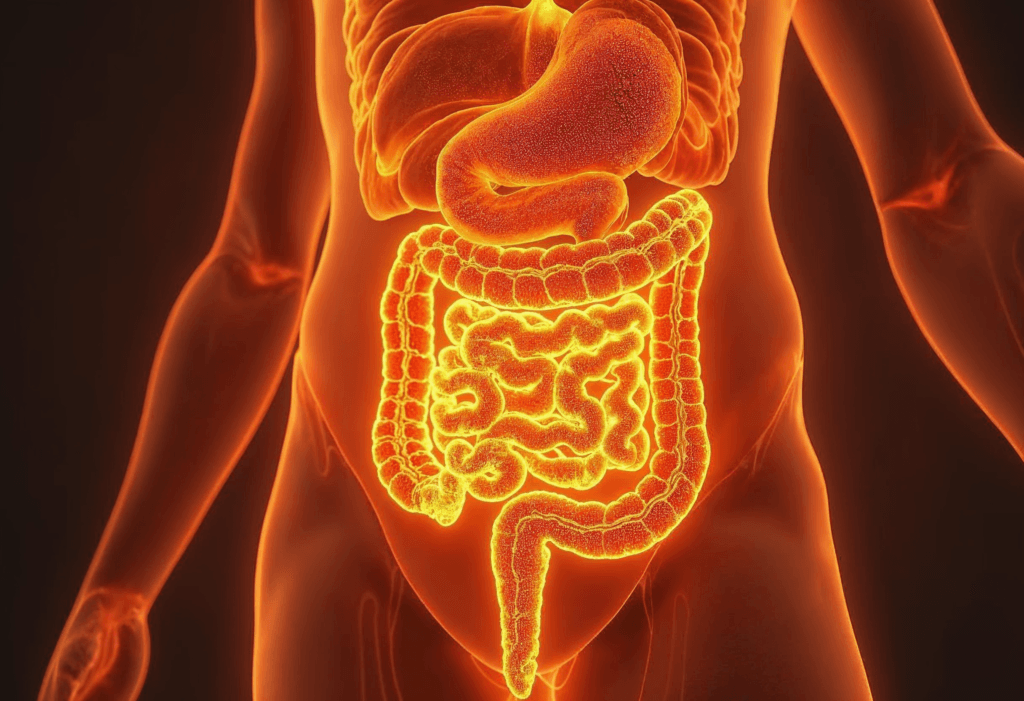Let’s be honest—we all fart. It’s a natural, normal part of life. But sometimes, the smell of a fart can catch you off guard. Ever wondered, “What does an unhealthy fart smell like?” It’s not just about embarrassment; the odor of your gas can actually tell you a lot about your digestive health. Let’s dive in and figure out what’s going on when your farts smell particularly foul.
Related tip: Check out The Ultimate Guide to Whole Food Plant-Based Recipes for a gut-friendly diet that promotes better digestion.
Introduction to Digestive Health and Gas
Picture this: Your stomach is like a chemistry lab, constantly breaking down food, absorbing nutrients, and creating gas as a byproduct. Gas isn’t a bad thing—it’s a sign that your gut is doing its job. But when the smell gets unusually pungent, it could mean your digestive system is waving a red flag.
Why Do We Fart? The Basics of Gas Formation
First, let’s understand the basics. Farts, or flatulence, happen when excess gas builds up in your intestines. This gas is a combination of swallowed air and the gases produced by bacteria breaking down food in your gut.
But why do they sometimes smell like rotten eggs or sulfur? 🤔 That’s where specific compounds like hydrogen sulfide and methane come into play. These gases are a result of certain foods or gut imbalances, which we’ll discuss in detail soon.
Differentiating Between Normal and Abnormal Gas Smell
Here’s a simple rule of thumb: If your farts smell like regular food breakdown, you’re in the clear. But if the smell turns rancid, sulfuric, or strangely chemical, it might be worth paying attention. The occasional stinky fart? No big deal. Persistent, offensive odors? That’s your body hinting at a deeper issue.
Common Causes of Unhealthy-Smelling Farts
Let’s get into the nitty-gritty. Why do some farts smell like something crawled up and died? 😬 The truth is, there are several reasons for bad-smelling gas. Most of them boil down to what you eat, the state of your gut, and even underlying health conditions.
Diet: Foods That Trigger Bad Odors
Ever heard the phrase “You are what you eat”? Well, your farts are no exception! Foods high in sulfur, like eggs, broccoli, cabbage, and red meat, are prime suspects. When these foods break down in your gut, they release sulfur-containing gases that smell pretty awful.
Here’s a fun fact: The smell of a fart can change depending on how much fiber you eat. High-fiber foods like beans and lentils can cause gas, but they might not be as smelly as sulfur-heavy foods.
“If your farts smell particularly bad after a big steak dinner, blame the sulfur in meat!”
Gut Health: The Role of Microbiota in Gas Odor
Your gut is home to trillions of bacteria, and they play a huge role in digestion. When your gut bacteria are balanced, everything works smoothly. But if there’s an imbalance—known as dysbiosis—it can lead to smelly gas. Think of it like a garden: If the “bad” bacteria take over, the “good” bacteria can’t do their job properly.
Foods, antibiotics, and even stress can throw your gut microbiota out of whack. And when that happens? You guessed it—your farts might become weapons of mass destruction.
Medical Conditions That Impact Gas Smell
Sometimes, bad-smelling gas isn’t just about food or bacteria. It can also point to underlying health problems like:
- Lactose intolerance: If your body can’t digest lactose (the sugar in milk), it ferments in your gut and produces smelly gas.
- Celiac disease: Gluten sensitivity can lead to malabsorption, which creates foul-smelling farts.
- Infections: Bacterial infections in your gut can disrupt digestion and lead to stinky gas.
“Persistent smelly farts aren’t just annoying—they might be a sign that something’s wrong. Listen to your body!”
Medications and Their Effects on Digestive Health
Did you know certain medications can affect how your body processes food? Antibiotics, for instance, can kill off good bacteria in your gut, leading to gas and bloating. Other medications, like antacids or laxatives, might alter your digestion and cause unusual gas smells.
What Makes a Fart Smell “Unhealthy”?
Now that we know some causes, let’s explore what actually makes a fart smell unhealthy. It’s all about the gases and compounds produced during digestion.
Sulfur Compounds and Foul Odors
The main culprit behind bad-smelling gas? Sulfur. It’s the same stuff that gives rotten eggs their smell. When foods rich in sulfur are broken down, they release hydrogen sulfide gas, which has a distinct “rotten” aroma. Foods like onions, garlic, and even wine can contribute to this.
Signs Your Digestive System Might Be Struggling
Here’s what to watch out for:
- Gas that smells particularly bad for several days in a row.
- Accompanying symptoms like bloating, diarrhea, or stomach pain.
- Changes in your stool or digestion.
If you notice these signs, it might be time to reevaluate your diet or see a doctor.
Understanding the causes of unhealthy-smelling farts is the first step to addressing them. Whether it’s your diet, gut health, or an underlying medical issue, there are solutions. In the next part, we’ll dive into common problems related to smelly gas and how to solve them. Stay tuned! 😊

Common Problems Related to Unhealthy-Smelling Gas
Alright, now that we’ve covered the causes, let’s dig deeper into the specific problems tied to stinky farts. If you’ve ever felt like your gas is a little too pungent, it’s not just in your head. There are real issues at play here that you might be able to fix. Let’s break it down.
Food Intolerances (Lactose, Gluten, etc.)
One of the biggest culprits behind smelly gas? Food intolerances. Imagine this: You’ve just downed a tall glass of milk or had a hearty bowl of pasta, and a few hours later—bam! You’re dealing with bloating, cramps, and farts that could clear a room. Sounds familiar? This might mean your body has trouble breaking down certain foods.
Lactose Intolerance
If you’re lactose intolerant, your body lacks the enzyme lactase, which helps digest lactose (the sugar in dairy). Undigested lactose ferments in your gut, producing smelly gas.
Gluten Sensitivity
Gluten can also be a trigger for many people. In those with celiac disease or gluten intolerance, consuming gluten causes inflammation and poor digestion, leading to—you guessed it—foul-smelling farts.
Irritable Bowel Syndrome (IBS) and Gas Issues
IBS is like the drama queen of gut issues—it loves to stir up trouble. This condition messes with your digestive system, often causing symptoms like bloating, constipation, diarrhea, and—you guessed it—excessive gas.
For people with IBS, the gas often smells worse because of poor digestion or bacterial imbalances. Think of it as a chaotic gut environment where nothing is breaking down properly.
Infections and Digestive Imbalances
Ever had a stomach bug or food poisoning? These can disrupt your gut in a major way. Bacterial infections, like those caused by Clostridium difficile (C. diff), can lead to incredibly foul-smelling gas due to toxins produced in your intestines.
Even after an infection clears up, your gut bacteria might still be out of balance, leaving your digestive system in a fragile state.
Malabsorption Issues: Why It Matters
Malabsorption happens when your body can’t absorb nutrients from food properly. Conditions like Crohn’s disease, pancreatic insufficiency, or even certain surgeries can lead to this. The result? Food stays undigested in your gut for longer, fermenting and creating gases that smell downright awful.
“Malabsorption isn’t just a problem for your digestion—it can also lead to nutrient deficiencies that affect your overall health.”

Solutions and Remedies for Unhealthy Gas Smells
Now that we’ve explored the problems, it’s time to talk solutions. Whether it’s tweaking your diet, improving your gut health, or seeking medical help, there are plenty of ways to make your gas less offensive (and less frequent!).
Dietary Adjustments: Foods to Avoid and Include
One of the easiest fixes for smelly gas is changing what you eat. Think of your diet as the fuel for your body’s engine. If the fuel is causing trouble, it’s time to switch things up.
For tips on creating a balanced diet, refer to the Academy of Nutrition and Dietetics.
Foods to Avoid
- High-sulfur foods: Eggs, cabbage, broccoli, garlic, and onions.
- Processed foods: These often contain artificial additives that can mess with digestion.
- Dairy: If you suspect lactose intolerance, try cutting out milk, cheese, and cream.
Foods to Include
- Fiber-rich foods: Whole grains, fruits, and veggies help keep things moving.
- Fermented foods: Yogurt, kimchi, and sauerkraut are great for gut health.
- Herbs and spices: Ginger, peppermint, and fennel can ease digestion.
Probiotics and Prebiotics for Better Gut Health
Your gut bacteria are like a little ecosystem. Probiotics (the “good” bacteria) and prebiotics (food for those bacteria) can help restore balance. Adding these to your diet is like planting flowers in a garden overrun with weeds.
- Probiotics: Found in yogurt, kefir, and supplements.
- Prebiotics: Found in bananas, asparagus, and whole grains.
“Think of probiotics as the friendly neighbors of your gut—they help keep the troublemakers in check!” 🦠
Medical Treatments and When to Consult a Doctor
Sometimes, no matter how much kale you eat or kombucha you drink, the problem persists. If your smelly gas comes with other symptoms like pain, diarrhea, or weight loss, it’s time to see a doctor.
When to Seek Help
- Persistent symptoms lasting more than a few weeks.
- Unexplained weight loss or fatigue.
- Blood in your stool or severe abdominal pain.
A healthcare professional might suggest tests for food intolerances, gut infections, or malabsorption issues. Treatments could include enzyme supplements, antibiotics, or specific medications to manage conditions like IBS or celiac disease.
Natural Remedies and Home Solutions
If you’re more into natural fixes, there are plenty of home remedies you can try. These won’t work miracles, but they can make a big difference in reducing odor and discomfort.
- Peppermint tea: Helps relax your digestive muscles and reduce bloating.
- Activated charcoal: May help absorb excess gas and reduce odor.
- Stay hydrated: Drinking enough water keeps your digestion running smoothly.

Preventing Unhealthy-Smelling Farts
They say prevention is better than cure, and that definitely applies to farts. By taking care of your gut health and making smart dietary choices, you can avoid most of the stink altogether. Here’s how:
Maintaining a Balanced Diet for Digestive Wellness
A balanced diet is the foundation of a healthy gut. Make sure you’re getting enough fiber, healthy fats, and lean proteins while cutting back on processed junk.
Think of your gut like a party: If you invite the right guests (healthy foods), the vibe will be great. But if you let in troublemakers (junk food), things can get out of hand pretty quickly. 🎉
See how Yogurt Bark Recipe can add probiotics to your diet, improving gut health and reducing smelly gas.
The Importance of Hydration and Regular Exercise
Staying hydrated isn’t just good for your skin—it’s great for your gut too. Water helps your digestive system break down food and move it along. Pair that with regular exercise, and you’ve got a recipe for fewer, less smelly farts.
Monitoring Your Body’s Signals for Early Intervention
Your body is constantly talking to you—it’s up to you to listen. If certain foods always leave you feeling gassy or bloated, it might be time to cut them out or try alternatives. Keeping a food diary can help you spot patterns.
“Think of your digestive system like a car—if you ignore the warning lights, you’ll end up in the shop!”
Smelly gas can be a little embarrassing, but it’s also a window into your digestive health. With a few dietary changes, some probiotic love, and a watchful eye on your symptoms, you can keep those stinky surprises to a minimum. Ready for Part 3? Let’s go! 😊
Whole foods are key to reducing digestive discomfort. Learn how to improve your eating habits with Is Greek Yogurt a Whole Food? Exploring the Nutritional Powerhouse.
Frequently Asked Questions About Fart Odors
Let’s address some of the most burning questions (and perhaps some guilty curiosities) about fart smells. Because let’s face it—who hasn’t wondered about this at some point?
What’s Normal and What’s Not in Fart Smells?
So, what’s considered normal when it comes to fart smells? Well, most farts are odorless or carry a mild smell because they’re primarily composed of nitrogen, carbon dioxide, and methane—all of which are odorless. The occasional stinky fart is also normal, especially after eating sulfur-rich foods like eggs or garlic.
However, if your farts consistently smell like rotten eggs, sewage, or chemicals, it could indicate:
- A poor diet (too much junk or sulfur-heavy foods).
- Gut imbalances (like dysbiosis).
- A medical condition (such as lactose intolerance or IBS).
The rule of thumb? If the smell is persistent or accompanied by other symptoms like bloating or pain, it’s worth investigating.
Can Stress and Anxiety Impact Gas Odor?
Absolutely! Stress doesn’t just mess with your mood—it can mess with your gut too. When you’re stressed, your digestive system slows down, which means food takes longer to break down. The longer it stays in your gut, the more it ferments, and the smellier your gas becomes.
Think of your gut and brain like best friends. When one is unhappy, the other often follows suit. This connection is known as the gut-brain axis, and it explains why stress and anxiety can wreak havoc on your digestive health.
Are Persistent Odors Always a Cause for Concern?
Not necessarily, but it’s something to monitor. Persistent smelly farts can sometimes just mean you’ve been indulging in more sulfur-rich or high-fiber foods. However, if the odor comes with other symptoms—like diarrhea, weight loss, or fatigue—it could signal an underlying issue.
If you’re unsure, it’s better to play it safe and consult a healthcare professional. They can help rule out conditions like celiac disease, IBS, or infections.
“Your gut health is like a good book—pay attention to the plot twists!”
Conclusion: Listening to Your Body Through Digestive Health
If there’s one thing you take away from this guide, let it be this: Your farts aren’t just a quirky bodily function—they’re a reflection of your digestive health. Whether they’re stinky, silent, or somewhere in between, they’re worth paying attention to.
A Quick Recap
Here’s a quick summary of what we’ve covered:
- Unhealthy-smelling farts can result from diet, gut imbalances, or medical conditions.
- Foods high in sulfur, lactose, or gluten are common culprits.
- Stress, infections, and malabsorption can also play a role.
- Solutions include dietary changes, probiotics, and medical consultations when necessary.
Small Changes, Big Results
Improving your gut health doesn’t have to be overwhelming. Start small:
- Swap out processed snacks for fresh fruits or veggies.
- Add fermented foods or a probiotic supplement to your routine.
- Stay hydrated and get moving—your gut will thank you!
“Your body has a way of telling you what it needs—smelly farts are just one of its many languages!” 😄
Final Thoughts
At the end of the day, fart smells might not be the most glamorous topic, but they’re an important one. After all, they’re a window into how well your digestive system is functioning. By paying attention, making a few changes, and seeking help when necessary, you can go from holding your nose to holding your head high.
So next time someone asks, “What does an unhealthy fart smell like?” you’ll be ready to share what you’ve learned—maybe with a little humor thrown in for good measure. 😉
Engage With Your Gut!
Got more questions about gut health, farts, or anything in between? Keep exploring, stay curious, and always listen to your body—it knows what it’s doing. Until next time, stay healthy (and maybe pack some air freshener, just in case!). 🌱

Digestive Health and Gas
Ingredients
Method
- Identify high-sulfur foods and reduce their intake.
- Increase your consumption of fiber-rich and fermented foods.
- Stay hydrated to aid digestion.
- Keep a food diary to track your diet and symptoms.
- Observe your body’s response to various foods and adjust accordingly.
- Consult a healthcare professional if symptoms persist or worsen.
- Discuss potential tests for food intolerances or infections.
- Drink peppermint tea to help reduce bloating.
- Consider activated charcoal for its gas-absorbing properties.
